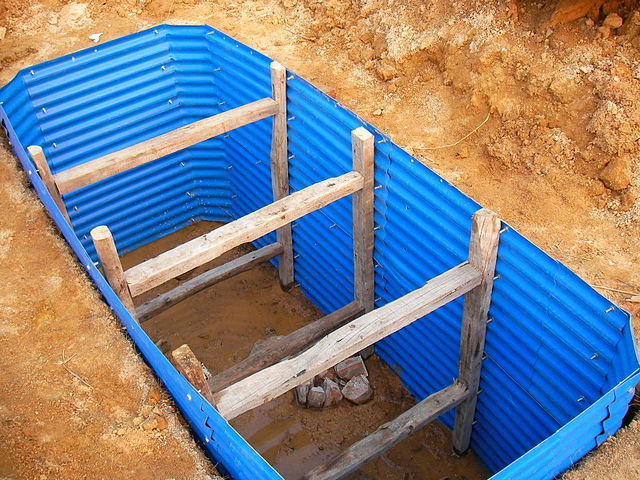A sanitation worker is a person responsible for cleaning, maintaining, operating, or emptying the equipment or technology at any step of the sanitation chain. This is the definition used in the narrower sense within the WASH sector. More broadly speaking, sanitation workers may also be involved in cleaning streets, parks, public spaces, sewers, stormwater drains, and public toilets. Another definition is: "The moment an individual’s waste is outsourced to another, it becomes sanitation work." Some organizations use the term specifically for municipal solid waste collectors, whereas others exclude the workers involved in management of solid waste sector from its definition.
Sanitation workers carrying out manual pit emptying (in Durban, South Africa) with personal protective equipment
Sanitation workers carrying out unsafe manual pit emptying of a pit latrine in Korogocho slums in Kenya
Street sweeper with hand cart in Stockholm, Sweden in 1905
Garbage collectors from the Hysacam company in Douala, Cameroon
Sanitation refers to public health conditions related to clean drinking water and treatment and disposal of human excreta and sewage. Preventing human contact with feces is part of sanitation, as is hand washing with soap. Sanitation systems aim to protect human health by providing a clean environment that will stop the transmission of disease, especially through the fecal–oral route. For example, diarrhea, a main cause of malnutrition and stunted growth in children, can be reduced through adequate sanitation. There are many other diseases which are easily transmitted in communities that have low levels of sanitation, such as ascariasis, cholera, hepatitis, polio, schistosomiasis, and trachoma, to name just a few.
The political system: collection, transport, treatment, disposal or reuse.
Access to safe drinking water and sanitation (2016)
Example of sanitation infrastructure: Shower, double-vault urine-diverting dry toilet (UDDT) and waterless urinal in Lima, Peru
Emergency pit lining kits by Evenproducts








